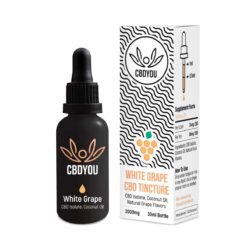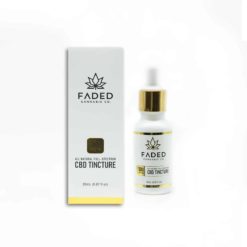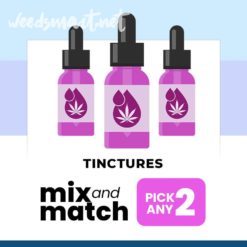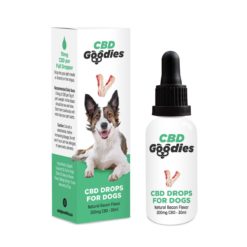CBD Oil Canada
CBD 101: CBD OIL CANADA
An Introduction to CBD Oil
Cannabidiol (CBD) is the second most common cannabinoid found in a cannabis plant and the most abundant cannabinoid in hemp plants. Due to its overabundance in hemp plants, CBD used in many products is typically derived from hemp plants. Also, since CBD is a cannabinoid, it reacts with the endocannabinoid system, but unlike THC, CBD affects the system in a non-psychoactive way (meaning users don’t get “high”).
CBD comes in various forms and products, but CBD oil in Canada is the most common. In oil form, CBD is more easily absorbed by the body as it has a higher bioavailability than does smoking CBD products. The quick interactions with the endocannabinoid system makes CBD oil, such as Blush Wellness CBD Oil and Keoni CBD Oil Tinctures, an effective method to promote health, and in a natural way!
What is the Difference Between CBD and Marijuana?
For clarity’s sake, CBD is an essential part of medical marijuana. However, the compound, as is found in many oils today, is derived from the hemp plant. This is widely regarded as the cousin of marijuana.
Now, marijuana is usually used for its psychoactive properties. That is, people consume it in any number of ways because it gets them high. However, the primary difference between these two is that people use CBD to reap its health benefits instead.
How Does CBD Work?
The compounds in cannabis that give it its peculiar effects are known as cannabinoids. These cannabinoids function by interacting with the body’s endocannabinoid system. Generally, you’ll find two broad types of receptors in the human body. They are:
- CB1 Receptors: These are present across every part of your body. They’re most common in the brain. Their primary function is coordination. They help to ensure that different bodily functions like pain, movement, thinking, mood, appetite, memories, etc., are working as they should.
- CB2 Receptors: These are much more common within the immune system. Much like CB1 receptors, they also help with pain. However, apart from that, they’re much more concerned with inflammation.
THC, CBD’s psychoactive counterpart, attaches itself to CB1 receptors in the body. In doing so, it produces its “high” feeling. On the other hand, CBD stimulates the receptors instead of attaching to them the same way as THC. That way, the body can produce its cannabinoids, aka endocannabinoids.
Effects of CBD Oil:
- Benefits of CBD Oil: In general, people use CBD oil to increase their overall sense of well being. CBD oil is known to induce sensations of relaxation, happiness and an overall increase in mood. Also, the non-psychoactive benefit of cannabidiol makes it an ideal medication to use throughout the day. Another benefit of CBD oil is that it is more discreet than smoking CBD products.
- Medical Uses of CBD Oil: Medical cannabis users have increasingly been adding CBD products to their dosing schedule due to its many benefits. The most common use for CBD oil Canada is to counteract anxiety and stress related conditions. Pain relief is another very common use for CBD oil
Below is a list of the most common medical uses of CBD Oil in Canada:
-
- Anxiety
- Arthritis
- Autism
- Depression
- Epilepsy
- High Blood Pressure
- Inflammation
- Insomnia
- Multiple Sclerosis
- Nausea
- Pain Relief
- Skin Conditions
- Stress
- Substance Abuse Treatment
- Negative Effects of CBD Oil: Though research in CBD is in its infancy, there have not been many side effects reported about CBD. Generally, when side effects are reported, they have to do with how CBD interacts with other medications. It is for this reason that before adding CBD to your daily life, make sure to check with a doctor if on any other medication.
Best Ways to Take CBD Oil
CBD tinctures and CBD syringes are what CBD oil normally comes in. The most common way to take CBD oil in Canada is by placing a few drops underneath the tongue so the cannabinoids can interact more quickly with the endocannabinoid system. It is recommended to leave it there before swallowing allowing for the CBD oil to absorb into your system more efficiently.
It is also important to know what dosage to take. Normally there are instructions on the bottle, but since everyone and every situation is different, it is suggested you not overdo it at the beginning.
How Much CBD Oil Should You Take?
Unlike tetrahydrocannabinol (THC), CBD doesn’t get you high. However, as we said earlier, you should still be very careful with your first-time dosage. What you want to do is to start slow. You can speak to your doctor if you need assistance with this, especially if you’re taking the drug for very specific health reasons.
The reason this is important is that the CBD content might be different in various products. For example, pure CBD oil can have densely concentrated CBD that’ll leave you feeling the effects for extended periods after taking it. On the other hand, regular CBD oil in Canada might not have so much CBD in it. So, the only way to determine a safe quantity for you would be to take it one step at a time.
What to Keep In Mind When Considering Dosage
Although the advice about starting small on your first time is quite insightful, it doesn’t cover everything. There are still a couple of things you must keep in mind. If you must dose CBD oils properly. They are:
- Doctor’s approval
This is very important for serious health challenges. For example, if you’re using CBD for epilepsy, you cannot afford to dose yourself without your doctor’s approval. Indeed, there’s a drug that’s been approved to assist with epilepsy in the market.
But, it is still important that you consult your doctor first. They’ll be able to advise you properly regarding how much you should take. Also, they’ll be able to provide a guide based on your specific physiology. That way, you’re not likely to take something that’ll end up hurting you.
- Product labels
CBD oils usually come in concentrations of 1 milligram for each drop. However, not all companies follow this measurement. If you are dosing your CBD properly, it might be a good idea for you to read the product labels.
The product labels will give you specific and useful information about the product itself. That way, you can know if you need to increase or reduce your consumption to meet your regular dosing needs.
However, you should know that not all product labels are accurate. Some companies intentionally (or otherwise) mention lower CBD concentrations than they should. These can be incredibly misleading. The fairly easy way around this problem is by getting their third-party testing results. Usually, these should be easily accessible online. If it isn’t available online or anywhere else, that might be a red flag for you not to buy the product in the first place.
- Vape oils
Dosing these can be fairly tricky. It is entirely dependent on how much of the vape oil you decide to inhale as well as the concentration of the vaping liquid. Because vaping essentially turns your oil into vapour, you might want to be careful here. Vapour is generally harder to dose and measure. So, you’ll need to pay special attention to your drags and how concentrated your products are.
- Lotions and creams
As you can already imagine, lotions and creams are a valid way to apply CBD oils to your body. However, these creams usually have more than just CBD oil in them. That is, some of them come with different ingredients. Many manufacturers do this to boost the features profile of the products themselves. Unfortunately, some of those extra ingredients might cause allergic reactions to you.
So, when using lotions and creams, ensure that you’re using only a little at a time. That way, even if something happens and you develop an allergic reaction, it’ll be manageable.
Is it Safe for Dogs?
If you have a pet dog, the chances are that you’re wondering how s/he can tap into the benefits of this compound. Well, there aren’t many works of research that show the effects of CBD on dogs. However, there aren’t many either that show that it is incredibly dangerous for them too.
Naturally, you want to ensure that you’re not feeding them CBD-infused chocolate. Chocolate is bad for dogs generally, whether it has CBD or not. So, if you’ll be giving man’s best friend a cannabis treat, ensure you’re doing it the right way. The best way to be sure is by consulting your vet. They’ll be in the best position to tell you what works and doesn’t work for your dog.
If you do decide to give your dog CBD, be sure to watch out for the dosage. Giving it too much at a time might cause their blood pressure to drop temporarily. It shouldn’t be so much. But, it could cause some lightheadedness for the little fella.
Alternatives to CBD Oil
Due to CBDs increasing popularity in recent years, there is no shortage of different CBD products on the Canadian market. Some of the most common alternatives for CBD oil in canada include:
- CBD Capsules / CBD Pills: Capsules filled with specific doses of CBD oil
- CBD Edibles: Any food item infused with CBD such as CBD gummies
- CBD Topicals: CBD creams, lotions and sprays that are applied to the skin
- CBD Heavy Cannabis Strains: Strains such as the Charlotte’s Web strain and the Harlequin strain that have a high CBD %
- Hemp Plants: The highest concentration of CBD of any plant in the Cannabis family
If it is the psychoactive properties that is the desired effect, then THC products would be the best choice. Some popular THC products include cannabis flower, concentrates and edibles. It is widely known that CBD and THC form a type of partnership that results in the best over experience when smoking such products together.
Best Place to Buy CBD Oil in Canada?
At Weed Smart, we take pride in providing the most up to date information on CBD Oil Canada. We listen to what our customers have to say and we tailor our company based on what they want, and recently that is more products. We have done extensive research on the CBD industry in Canada, and have brought you some of the best CBD brands on the market! So buy your CBD products at the best online dispensary in Canada and make sure you shop smart, shop Weed Smart!
Sources:
- Hui-Chen Lu and Ken Mackie. An introduction to the endogenous cannabinoid system. Accessed February 4, 2021 at https://www.ncbi.nlm.nih.gov/pmc/articles/PMC4789136/.
- Shenglong Zou and Ujendra Kumar. Cannabinoid Receptors and the Endocannabinoid System: Signaling and Function in the Central Nervous System. Accessed February 4, 2021 at https://www.ncbi.nlm.nih.gov/pmc/articles/PMC5877694/.
- Raphael Mechoulam and Linda A. Parker. The Endocannabinoid System and the Brain. Accessed February 4, 2021 at https://www.annualreviews.org/doi/abs/10.1146/annurev-psych-113011-143739.
- Tetrahydrocannabinol. Accessed February 4, 2021 at https://www.sciencedirect.com/topics/neuroscience/tetrahydrocannabinol.
- Statement by FDA Commissioner Scott Gottlieb, M.D., on the importance of conducting proper research to prove safe and effective medical uses for the active chemicals in marijuana and its components. Accessed February 4, 2021 at https://www.fda.gov/news-events/press-announcements/statement-fda-commissioner-scott-gottlieb-md-importance-conducting-proper-research-prove-safe-and.
- Marcel O. Bonn-Miller, PhD; Mallory J. E. Loflin, PhD; Brian F. Thomas, PhD; et al. Labeling Accuracy of Cannabidiol Extracts Sold Online. Accessed February 4, 2021 at https://jamanetwork.com/journals/jama/fullarticle/2661569.
- Peter Grinspoon, MD. Medical Marijuana. Accessed February 4, 2021 at https://www.health.harvard.edu/blog/medical-marijuana-2018011513085.



















